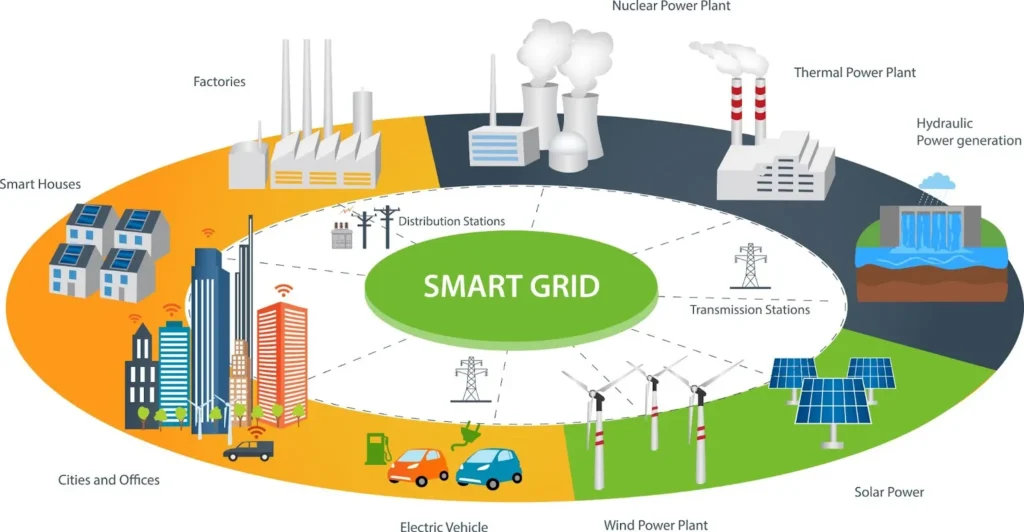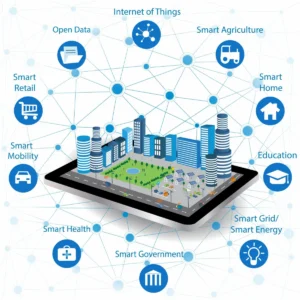Blockchain for sustainable smart cities is rapidly emerging as a crucial technology that can help address environmental challenges faced by urban areas. As cities continue to grow and evolve, the need for innovative solutions to manage resources efficiently becomes increasingly important. By leveraging blockchain technology, smart cities can improve transparency, reduce waste, and foster sustainable practices. In this article, we will explore how blockchain for sustainable smart cities can pave the way toward environmental sustainability through five key strategies.
1. Enhancing Energy Management with Blockchain
The integration of blockchain for sustainable smart cities significantly enhances energy management systems. Traditional energy grids often face challenges related to inefficiency and lack of transparency. However, blockchain technology can create decentralized energy markets that empower consumers to trade energy directly.
1.1 Decentralized Energy Trading
Through blockchain, residents can generate their own renewable energy—such as solar power—and sell excess energy to their neighbors. This decentralized approach promotes energy independence and encourages the adoption of renewable sources, leading to reduced carbon emissions.
1.2 Smart Contracts for Energy Transactions
Smart contracts, powered by blockchain, automate energy transactions and settlements, ensuring accurate and timely payments. This technology can help optimize energy distribution, reduce operational costs, and increase the overall efficiency of energy management in smart cities.
2. Improving Waste Management Systems
Blockchain for sustainable smart cities can revolutionize waste management by enhancing tracking and accountability in waste disposal processes.
2.1 Real-Time Tracking of Waste Disposal
Using blockchain, cities can implement real-time tracking systems that monitor waste collection, transportation, and disposal. This transparency ensures compliance with environmental regulations and allows for timely interventions when issues arise.
2.2 Incentivizing Recycling and Waste Reduction
By integrating blockchain with incentive programs, cities can reward residents for recycling efforts. For instance, smart contracts can automatically credit tokens to users who recycle, encouraging more sustainable behavior and reducing landfill waste.
3. Fostering Sustainable Transportation Solutions
Transportation is a significant contributor to urban pollution, but blockchain for sustainable smart cities can promote greener alternatives through improved mobility solutions.
3.1 Mobility as a Service (MaaS)
MaaS platforms, enabled by blockchain, allow users to plan, book, and pay for various transportation services seamlessly. By integrating public transport, ride-sharing, and bike-sharing services, cities can reduce reliance on personal vehicles, ultimately lowering emissions.
3.2 Transparent Supply Chain for Electric Vehicles (EVs)
Blockchain can enhance the supply chain transparency of electric vehicles by tracking materials used in battery production, ensuring ethical sourcing, and optimizing manufacturing processes. This transparency can bolster consumer trust and encourage the adoption of EVs.
4. Boosting Water Resource Management
Water scarcity is a pressing issue for many urban areas. Blockchain for sustainable smart cities offers innovative solutions to optimize water resource management.
4.1 Water Usage Tracking and Reporting
With blockchain, cities can monitor water usage in real-time, ensuring accountability and reducing waste. By providing residents with transparent data on their consumption patterns, cities can promote responsible water usage.
4.2 Smart Contracts for Water Rights Management
Smart contracts can facilitate efficient allocation and management of water rights. By automating the transfer of water rights based on real-time data, cities can minimize disputes and ensure equitable distribution of this precious resource.
5. Enhancing Civic Engagement and Community Resilience
Blockchain for sustainable smart cities can empower citizens by enhancing civic engagement and promoting community resilience.
5.1 Transparent Decision-Making Processes
Blockchain technology can facilitate transparent decision-making by allowing citizens to vote on local initiatives and budget allocations securely. This engagement fosters trust in governance and encourages community participation in sustainability efforts.
5.2 Decentralized Identity Solutions
By implementing decentralized identity solutions, residents can securely access city services without compromising their personal information. This approach not only protects privacy but also builds a more resilient and inclusive community.
Conclusion
The integration of blockchain for sustainable smart cities represents a transformative opportunity to tackle environmental challenges while enhancing urban living. By leveraging blockchain technology, cities can enhance energy management, improve waste systems, foster sustainable transportation, boost water resource management, and promote civic engagement. As we continue to explore innovative solutions for sustainable urban development, the role of blockchain will undoubtedly grow, paving the way for a more sustainable and environmentally responsible future.




